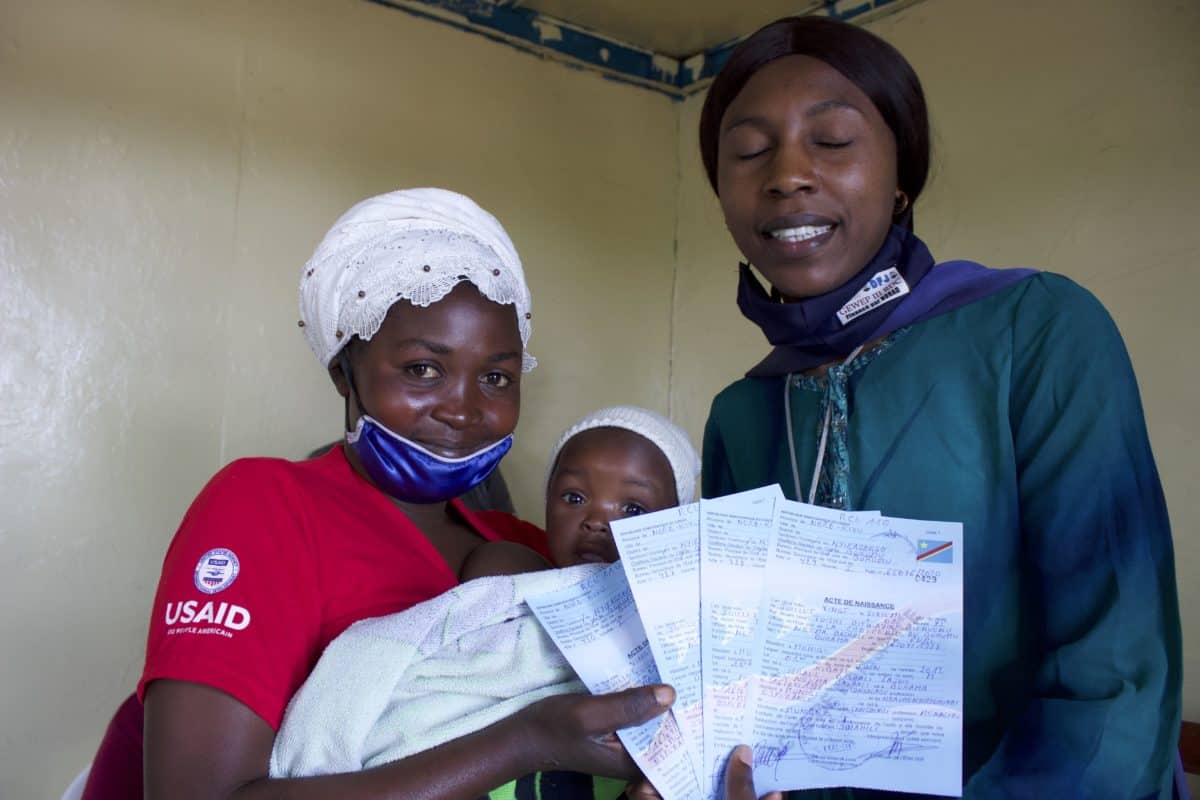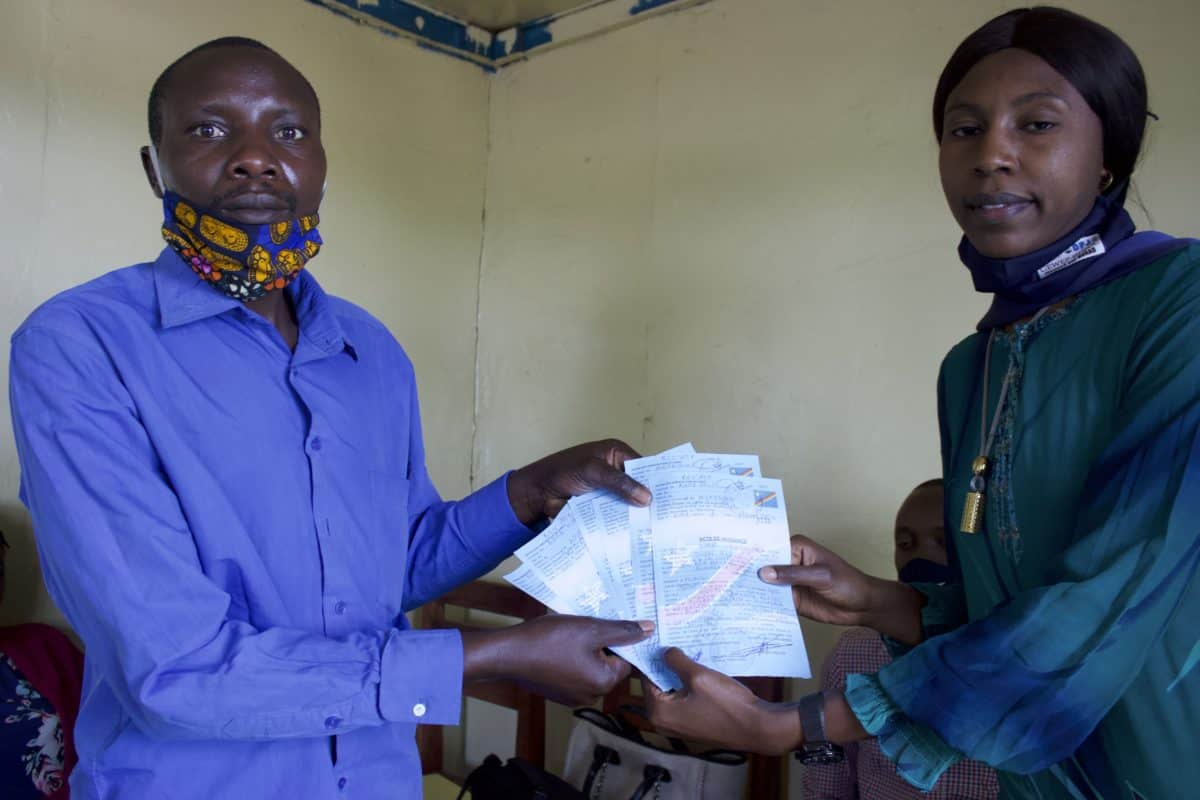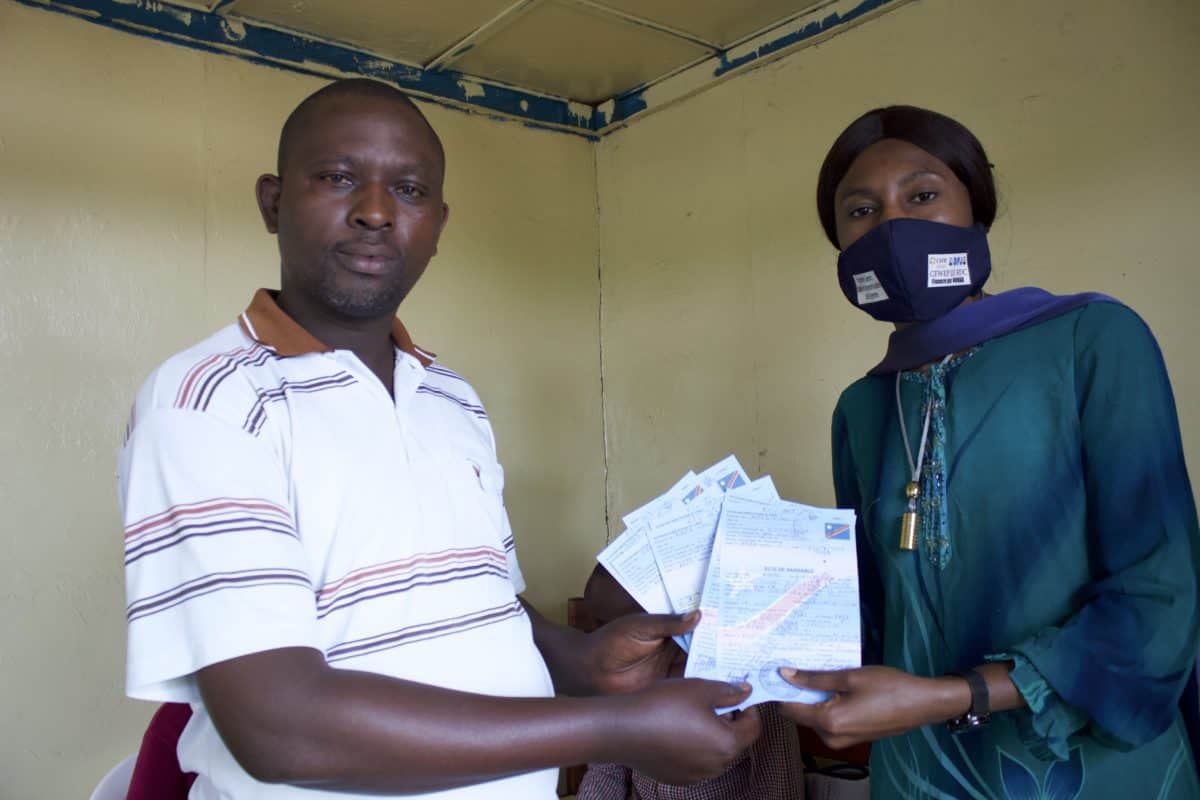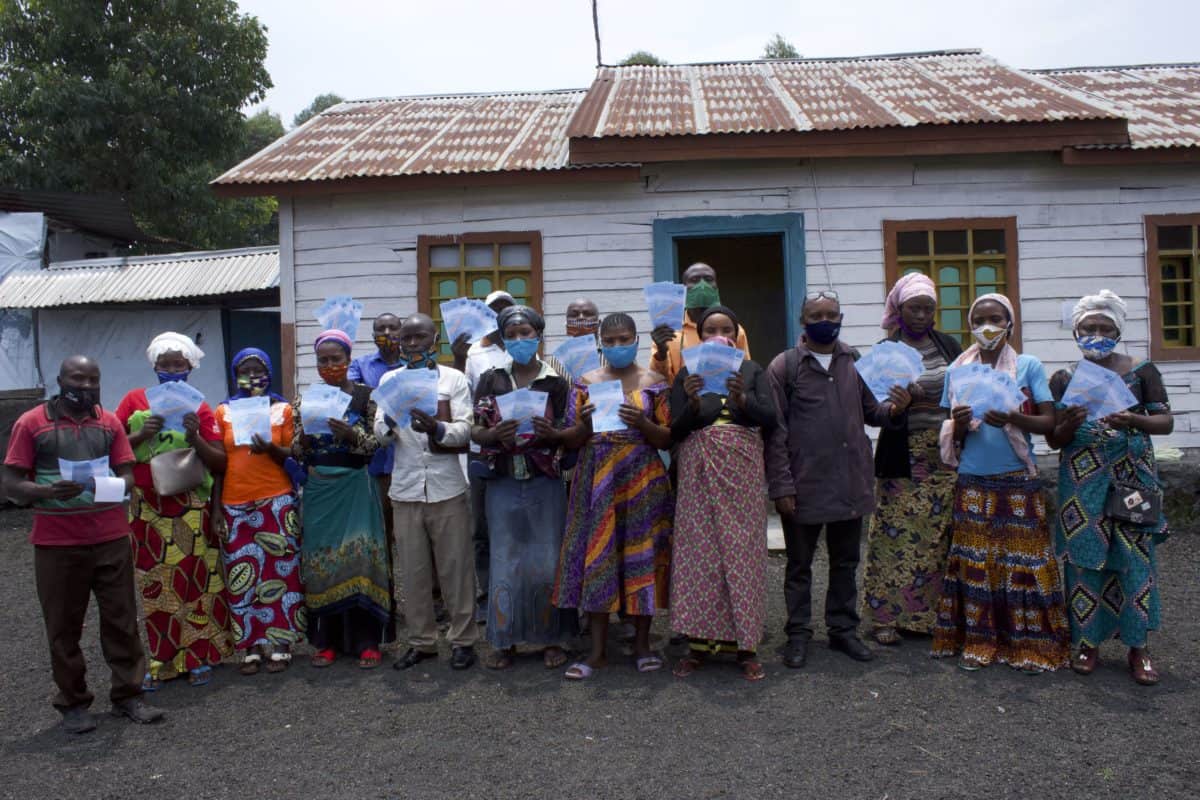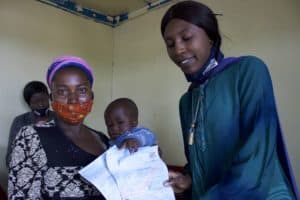
Like many parents in the Democratic Republic of the Congo, Nicole Kahindo had never thought about birth certificates. “I only knew that, as long as my husband and his family recognized our children, and that would suffice for life to go on. No one could contest their paternity,” she said. When Nicole’s husband abandoned her and their three children, she learned an awful lesson: informal recognition by family members is no substitute for legal status. In sub-Sarahan Africa, 95 million children are in the same predicament — without legal status for want of a birth certificate.
Thanks to the persistence of attorneys from Congo’s Women Lawyers’ Movement (Dynamique des Femmes Juristes, or DFJ), 137 Congolese youngsters from Nyiragongo territory in North Kivu received their official birth certificates on September 10, 2020. Nicole’s children were among them. “Today, my children are officially known to exist by the Congolese state,” she said that day. “And even when one of them wants to study abroad someday, he or she will have a document to certify nationality and origin.”
Attorney Pamela Nkenda, who directs DFJ’s project to aid victims of sexual and gender-based violence, explained why a birth certificate is so vitally important for every child. “It implies that a child is recognized by her parents. It gives the child a nationality, and the right to benefit from all the rights attached to that nationality. It gives the child the right to inherit property,” she says. In the DRC, however, there are still many children who don’t have a birth certificate — without which they may forever struggle to own or inherit property, get a job, get married, or even travel.
Congolese law requires every child to have a birth certificate within 90 days, but people in rural areas like Nyiragongo simply don’t know about the requirement. After that three-month window, Nkenda explains, “you have to go to court to obtain a ‘supplementary judgment’ to have a birth certificate issued.” Going to court is a tall order for parents who don’t even know birth certificates exist — so Nkenda and her team go to them.
“DFJ has given itself the mission of supporting these children,” Pamela says, starting in Nyiragongo territory. She and her team began by going door to door to talk about birth certificates — not only to family homes, but to members of local NGOs, medical facilities, schools and churches. This painstaking work identified 137 unregistered children, 58 girls and 79 boys, in Nyiragongo. The same process identified 97 more children, 47 girls and 50 boys, in neighboring Kitshanga territory.
Once they’d identified the children, Nkenda and the DFJ team coached their families through the process of applying for a “supplementary judgment” from the local court. They did their work carefully, and the court agreed to issue a birth certificate for every single one of the children. The certificates themselves arrived in Nyiragongo first — they’ll come to Kitshanga later in early October. Finally, on September 10, Nicole and other proud parents brought their children to receive their birth certificates.
The 137 children in Nyiragongo and the 90 in Kitshanga are “just the tiny visible part of the iceberg,” Nkenda says, since so many children in DRC lack birth certificates and the rights and protections that come with them. “These territories represent only a small part of the large province of North Kivu. This is a time to call people of goodwill to action, so that any child in this situation can get out of it.”
For her part, Nicole is happy to help raise awareness. “In the future, I am going to register my children within 90 days,” she says, “and I’m going to help other moms do the same, so their children don’t end up without a nationality. I thank DFJ very much for all they do to fight against violations of women’s rights, and for the support they continue to provide us.”
Simply put, a birth certificate says: I belong. With the support of ECI, Pamela and the women of the DFJ team are working hard to make sure all children in Congo have the security of belonging — to their parents, to their community, to their nation and to our common world. “And thus,” Nkenda says, “justice will be fair and equitable!”◼

